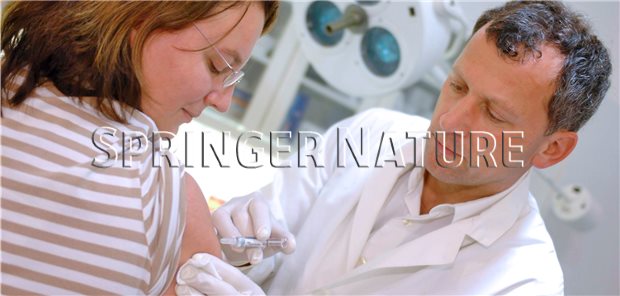
The chance of preventing cancer is very little
Bonn / Heidelberg.
Human papillomavirus (HPV) is widely spread and is known to cause various types of cancer, especially cervical cancer. In addition, viruses cause oral and throat cancers, anal cancer and penile cancer. Currently, 12 of the more than 200 types of HPV known to date are considered carcinogens. World Health Organization ranked According to the Robert Koch Institute The following types of HPV are currently classified as definitively carcinogenic: 16, 18, 31, 33, 35, 39, 45, 51, 52, 56, 58 and 59. In Germany alone, 7,700 people have been diagnosed with HPV-related cancer Human papillomavirus every year German Cancer Research Center (DKFZ) and German Cancer Aid for HPV Awareness Day on March 4.
The disease often passes early in the first sexual contact
Vaccination at an early age provides the best protection against infection with HPV and associated diseases. Because HPV is most often transmitted during the first sexual contact. The gist: HPV-related cancers usually appear decades after being infected with the virus. For many people, this threat remains abstract and does not stimulate immediate action, according to DKFZ and German Cancer Aid.
At present, very few children and adolescents are vaccinated against HPV in Germany. The message quoted Michael Bauman, CEO of DKFZ, “All Germany currently hopes that we will achieve protective herd immunity as soon as possible through rapid vaccinations against Corona.” “But with the HPV vaccination we have had this wonderful opportunity for years and we are not taking advantage of it.”
With this, Baumann points to the rates of vaccination against HPV in Germany, which are low compared to countries such as Sweden or Australia. Only 43% of girls are vaccinated by the age of 15. This means that Germany is still far from comprehensive protection against cancer-causing HPVs, which are only given with a vaccination rate of at least 70 percent.
Vaccination is recommended for both boys and girls
The Standing Vaccination Committee (STIKO) now recommends vaccination against HPV for all children aged 9-14 years (Epid Bull 26/2018This means now also for boys. Missed vaccinations can be compensated until the age of 17. The vaccination, rated “very safe” by the RKI and the World Health Organization, has been recommended for girls since 2007 to prevent cervical cancer.
The DKFZ and German Cancer Aid have also chosen the theme of “Cancer vaccination” as the focus of the National Cancer Prevention Week this year from September 13th to 17th. Several initiatives have been planned in which the two organizations want to motivate both parents and youth to benefit from the HPV vaccination.
“So we want to use the positive attention that vaccination is currently receiving and remind people that vaccinations are also an important part of cancer prevention,” says Gerd Nittkofen, CEO of Deutsche Krebshilf. “Not many people are aware that the HPV vaccine can protect children and adolescents from preventable cancer in adulthood.”
More information about the HPV vaccination from Cancer Aid’s INFONETZ (toll-free: 0800/80708877) and the Cancer Information Service of the DKFZ (toll-free number: 0800-420 30 40) can be obtained.

“Organizer. Social media geek. General communicator. Bacon scholar. Proud pop culture trailblazer.”
